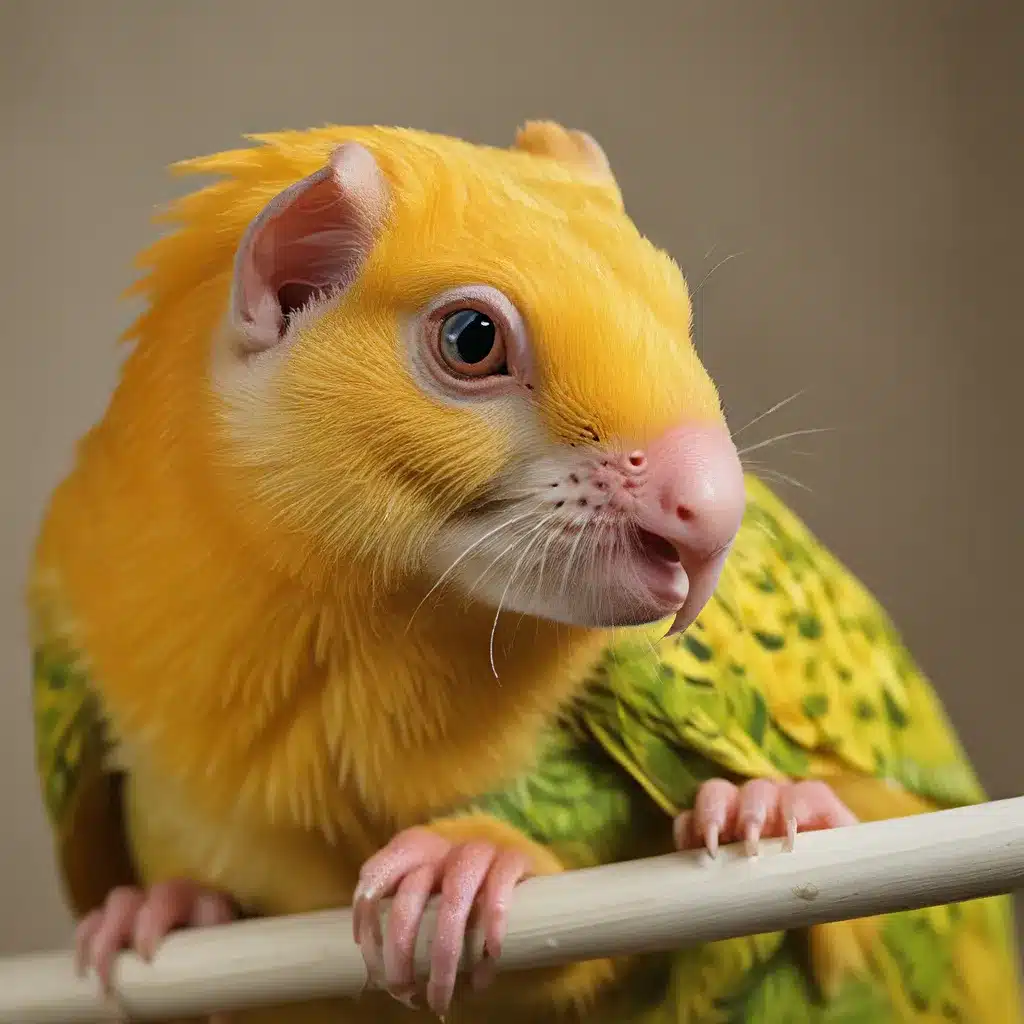
The Perils of Impulse Purchases
Ah, the allure of an exotic pet – those mesmerizing eyes, that captivating movement, the thrill of the unknown. It’s no wonder so many of us are tempted to bring home a scaly, feathery, or furry friend on a whim. But, my fellow exotic pet enthusiasts, I’m here to tell you that giving in to that impulse can come with a heavy price tag – one that’s far more than just the cost of the animal itself.
You see, when we purchase exotic pets without fully considering the commitment and care they require, we’re not just putting our new companion at risk. We’re also contributing to a troubling trend that’s threatening the very existence of these fascinating creatures. Wild-caught exotic pets can introduce diseases and parasites into the pet trade, disrupt fragile ecosystems, and drive endangered species closer to the brink of extinction.
But fear not, my friends! There is a far better way to indulge our exotic pet cravings – one that’s not only better for the animals, but also for our own peace of mind. And it all starts with the ethical breeding of these incredible creatures.
The Benefits of Captive Breeding
When you choose a captive-bred exotic pet, you’re not just getting a healthier, more adaptable animal. You’re also making a statement – a vote of confidence in the responsible stewardship of these species. Captive-bred reptiles, for example, typically exhibit superior health and adaptability compared to their wild-caught counterparts. They’re raised in controlled environments that mimic their natural habitats, allowing them to thrive in the comfort of our homes.
But the benefits of captive breeding go far beyond the individual animal. By supporting ethical breeding practices, you’re playing a crucial role in conservation efforts and the long-term sustainability of the exotic pet trade. When the demand for wild-caught animals decreases, the pressure on fragile ecosystems is reduced, and endangered species are given a fighting chance at survival.
And let’s not forget the sheer joy of watching a captive-bred animal grow and thrive under your care. These remarkable creatures are often more docile, interactive, and attuned to their human companions. It’s a bond that goes beyond just owning a pet – it’s a partnership in the truest sense of the word.
The Pitfalls of Irresponsible Breeding
Now, I know what you’re thinking: “But what about the breeders themselves? Aren’t they just in it for the money?” Well, my friends, that’s where things can get a bit murky. You see, not all breeders are created equal, and it’s our responsibility as consumers to do our due diligence.
Irresponsible breeding practices, whether driven by greed or ignorance, can have devastating consequences. Overcrowding, poor living conditions, and a complete disregard for the animals’ well-being can lead to health issues, behavioral problems, and even the accidental release of exotic species into the wild.
And let’s not forget the impact on the animals themselves. Imagine being locked in a cramped, barren enclosure, with no opportunity to engage in natural behaviors or interact with your own kind. It’s a fate that no living creature should have to endure.
Recognizing Responsible Breeders
So, how can we, as ethical exotic pet owners, ensure that we’re supporting the right breeders? Well, it all comes down to doing your homework and asking the right questions.
Look for breeders who prioritize the health and well-being of their animals above all else. They should have clean, spacious enclosures, a commitment to enrichment and socialization, and a deep understanding of each species’ unique needs.
Responsible breeders will also be transparent about their breeding practices, lineage, and any potential genetic issues. They should be more than happy to answer your questions and provide you with all the information you need to make an informed decision.
And let’s not forget about conservation efforts. The best breeders will be actively involved in programs that work to preserve endangered species and promote sustainable practices within the exotic pet trade.
Becoming an Ethical Exotic Pet Owner
Now, I know what you’re thinking: “This all sounds great, but how do I actually become an ethical exotic pet owner?” Well, my friends, it’s simpler than you might think.
First and foremost, do your research. Learn as much as you can about the specific species you’re interested in, their care requirements, and the potential challenges you might face. Golden Exotic Pets is a great resource for in-depth information on a wide variety of exotic pets.
Next, be honest with yourself about your ability to provide the level of care and commitment these animals require. Exotic pets are not low-maintenance, and we owe it to them to ensure we can meet their needs to the fullest.
And when it comes time to make that all-important purchasing decision, choose a reputable, ethical breeder. Look for those who are transparent, knowledgeable, and genuinely passionate about the well-being of their animals.
Remember, becoming an ethical exotic pet owner is not just about the initial purchase – it’s a lifelong commitment. Be prepared to provide your new companion with the love, attention, and resources it needs to thrive. And don’t be afraid to reach out to experienced owners or veterinarians for guidance along the way.
Conclusion: A Future of Responsible Ownership
My fellow exotic pet enthusiasts, the path to ethical ownership may not be the easiest, but I can assure you, it’s the most rewarding. By supporting responsible breeding practices and making informed decisions, we can enjoy the companionship of these incredible creatures while also playing a vital role in their conservation.
So, the next time you find yourself captivated by the allure of an exotic pet, take a step back, do your research, and seek out an ethical breeder. Your new furry, scaly, or feathery friend will thank you – and so will the generations of exotic pets to come.

